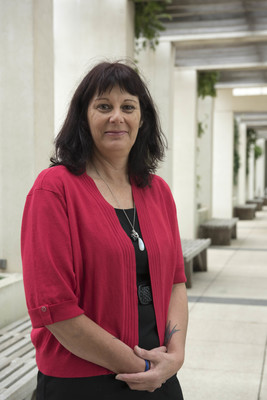A Geelong stroke survivor is on a mission to educate others about the condition despite it being “difficult to at times”.
Thomson’s Dianne Speed is drawing from her own personal experiences to urge residents to be stroke aware.
“Talking about my stroke can sometimes be rewarding but other times internally stressful,” she said.
“But if I can pass on important information to others that can help save a life than my job is done.”
The 56-year-old has been StrokeSafe speaker for about five years, joining 160 other volunteers across the country.
“The reason I give these talks is to raise awareness and make sure everyone can recognise the signs of stroke,” she said.
“It’s a complex and challenging condition that has significant impact on individuals, carers and our wider community.”
Dianne suffered a stroke aged 26, just 18 hours after giving birth to her daughter.
“When I had my stroke there was no stroke foundation, I had no support besides from the hospital and a social worker,” she said.
It took Dianne “at least 12 months” to be fully functioning again, however, the stroke left her without functionality in her right hand and memory issues.
Dianne said stroke has affected her “in many ways”.
“I lost a lot of friends, my marriage didn’t last long after the stroke and I had to raise my daughter on my own,” she said.
“I don’t cope so well sometimes and I suffer ongoing chronic anxiety.”
But Diane wants to show that stroke survivors “can get back to a sense of normality”.
“I’m living proof that there is life after stroke,” she said.
“It’s not easy, but I get through every day.”
There are over 400,000 people living with the effects of stroke across Australia with almost 7,000 stroke survivors and carers in the Geelong region alone.
In Australia, stroke kills more women than breast cancer and more men than prostate cancer.
“Too many families continue to be devastated by this disease which can be prevented, treated and beaten.”
Dianne said she has received a positive reception from her talks across Geelong.
“I often get people come up to me after and say they weren’t aware of the issue and its impacts, so it feels as though I’m making a difference,” she said.







